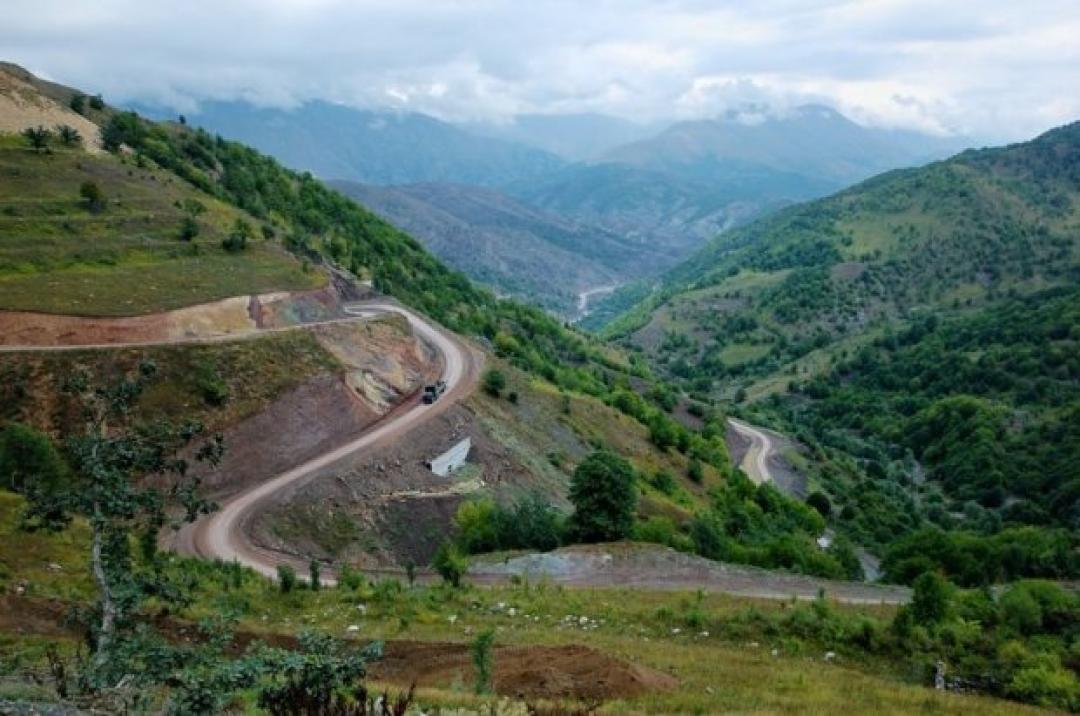
Nagorno-Karabakh: newest developments

On 14 January, Amnesty International condemned the “disproportionate and indiscriminate” attacks on civilians carried out by both Armenian and Azerbaijani forces during the war in Nagorno-Karabakh in its latest report.
“The two sides used notoriously inaccurate and indiscriminate weapons in populated civilian areas, including internationally banned cluster munitions, unlawfully killing scores of civilians and wounding hundreds more. The multiplicity of such strikes on civilian areas indicates that they were not accidental and may have instead been part of a deliberate strategy aimed at pressuring and intimidating the other side. Neither government can credibly claim to have not been aware that strikes on civilian residential areas using notoriously inaccurate or/and inherently indiscriminate weapons endangered civilians,” the report emphasised.
In their report, Amnesty documented eight attacks carried out by Armenian forces on the cities of Ganja and Barda, as well as the villages of Gashalti and Garayusufli. As a result of these attacks, 72 civilians were killed, while the official data counted 94 civilian casualties. When it comes to civilian casualties caused by Azerbaijan, Amnesty International highlighted that nine strikes were carried out by Azerbaijani forces on the cities of Stepanakert/Khakandi, Martuni, and Martakert in Nagorno-Karabakh, as well as on the village of David-Bek in Armenia that killed 11 civilians, adding that according to the official data 52 Armenian civilians were killed in total.
Speaking on the casualties of the war, the member of the Board of Trustees of Armenia's Military Insurance Fund Mesrop Manukyan said that the damage caused during the war amounted to $38.4 billion. According to his estimates, human losses alone were estimated at $7 billion (about 4,500 killed soldiers and missing servicemen, 5,000 first-degree disabled people and 6,000 second-degree disabled people). The damage to the defense system amounted to about $2 billion, and the damage to the Sotk gold deposit was about $8 billion. He also noted that the Military Insurance Fund has a debt of about $1.2 billion, which means potential taxpayers of Armenia would have to pay this amount.
Armenia’s banking system lost about $1 billion, and 10 out of 15 mines in Karabakh came under Azerbaijan's control, where the damage was estimated at $3 billion. At the same time, the damage to infrastructure (natural monopolies: electricity, gas, water supply, irrigation, roads) was estimated at about $2 billion, while the damage to agriculture amounted at least to $3 billion. He estimated the minimum moral damage to citizens at $3 billion and the damage to forests, lands, water resources and housing at $7 billion.
Azerbaijan also unveiled their estimates on the amount of damage to civilians, state property, as well as infrastructure facilities and business facilities, which stood at 91 million manats. “Damage to vehicles amounted to 400,000 manats, agriculture (livestock, machinery, etc.) 1 million 311 thousand manats, business entities (equipment, tools) 2 million 500 thousand manats, Tartar Cotton Plant 3 million 524.6 thousand manats, on infrastructure (roads, post, communication, electricity, gas and water supply, information provision) 27 million 410 thousand manats, on individual housing, apartment houses and other constructions 19 million 200 thousand manats,” stated the spokesperson of the country’s Cabinet of Ministers Ibrahim Mammadov.
The new OSCE Chairperson-in-Office, Swedish Foreign Minister Ann Linde highlighted that during her chairmanship Sweden’s priority is to contribute to the resolution of regional conflicts. “Conflict resolution is a strong priority for Sweden to chair the OSCE. The armed conflict in and around Nagorno-Karabakh, heavy human casualties, and human suffering clearly revealed the risks that arise when conflicts are not resolved,” she stated. Linde emphasised that the Nagorno-Karabakh conflict has not yet been resolved and that the OSCE could still give its contribution to the conflict resolution with the involvement of the OSCE Minsk Group and the personal representative of the OSCE Chairman-in-Office.
See Also


Armenia Records 5.9% GDP Growth in 2024, Missing 7% Goal

Yerevan Balances Strategic Ties with Both US and Russia, Says Foreign Minister

FM Mirzoyan: Peace Deal with Azerbaijan Is Within Reach

Pashinyan and Erdogan Hold Call, Reaffirm Commitment to Ongoing Dialogue

